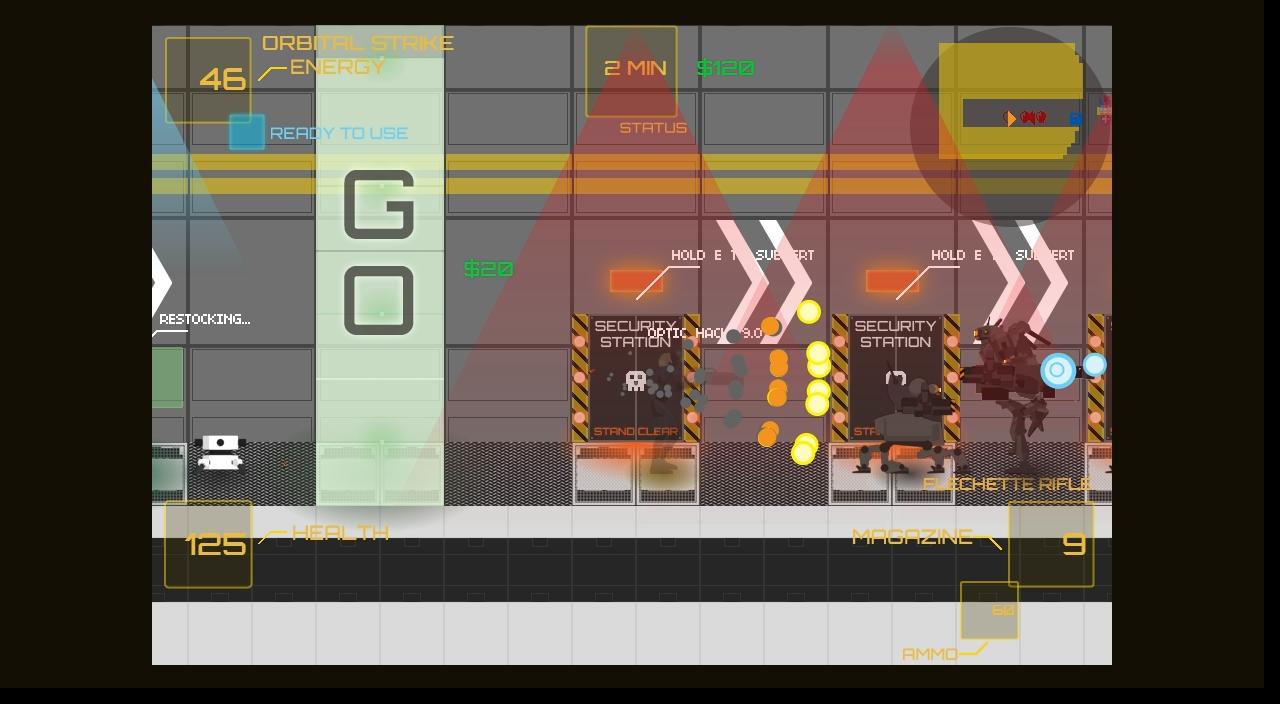
Featured Blog | This community-written post highlights the best of what the game industry has to offer. Read more like it on the Game Developer Blogs or learn how to Submit Your Own Blog Post
Mistakes Were Made: After the Kickstarter Lights Go Out
It’s been about a year since my Contract Work Kickstarter succeeded and while things are good, they aren’t all I hoped. After Kickstarter, the game barely sold any copies and received awful reviews. Mistakes were definitely made – here’s my short list.

After the Kickstarter Lights Go Out
It's been about a year since the Contract Work Kickstarter and while things are good, they aren't exactly what I hoped. Let me say first that I'm incredibly fortunate to be where I'm at right now: A successful Kickstarter campaign completed, good health, a stable job, and a great circle of friends; it's more than a lot of people have and more than I probably deserve.
With that said, there's definitely some disappointment - Contract Work barely sold any copies, received mixed reviews (at best) and I'm back in the cubes instead of being the next indie gaming success story. Mistakes were definitely made - here's my short list.
Not Making a Great Product
I've worked long enough in software to understand that it won't be perfect; shipping a product is hard enough. But Contract Work utterly failed the 'Is this game worth your time?' test. Things that I really screwed up on:
1. Art & Style
I'm not a great artist, which from the beginning meant that I should have been smarter about the Contract Work art. At some point I tried to transition away from pixel art to taking advantage of my 3d rendering knowledge, but I didn't finish the transition. I also brought in some outside assets to help fill some gaps. Take a look at this screen:

The security stations are in a pixel art style. The enemies are 3d renders. The floor tiles are outside assets. There are multiple types of disjointed lighting effects. There is so much text on the screen! As Adam Smith from RockPaperShotgun writes:
The graphics, taken as a whole, lack character, even if some of the robot designs are attractive in isolation. It’s all too busy, which added to my initial sense of disorientation and difficulty. The screen presents too much information, the camera is a little too close, and the character feels beset from all sides, even before the real action begins.
What I needed to do was clean everything up, take more time to establish a consistent style, then make sure that style was used in every part of the game. It retrospect, it was a hot mess.
2. Complexity Over Polish
This is a personal bad habit: making things too complex. In this case, my desire to provide enough 'feature flair' caused me to end up with many half baked features and not enough refined systems. As Michael Westgarth from IndieGameHQ writes:
Citing Contra as an inspiration, it then seems odd that Kee-Won Hong has gone for a more complicated control scheme. The A and D keys move the player left and right, S lets players drop through specific platforms, W jumps and double jumps, R reloads, Q switches weapon, the shift key must be held to sprint and E is held down to hack. This is all carried out while aiming and shooting with the mouse. If Contract Work’s control scheme sounds cumbersome, that’s because it is.
And he's right! Somewhere along the line, a simple side scroller grew into this mess of keys and controls. Perhaps Steve Jobs said it best: "Simple can be harder than complex: You have to work hard to get your thinking clean to make it simple". And I don't think I worked hard enough.
3. It's boring
The dreaded b-word. I don't know if there's an easy fix, but the answer isn't to add more features! For Contract Work, I think the answer may lie in 'juiciness' - making every jump, shot and movement feel good. If you want an example of a game that does this well, check out Towerfall. These guys also do a pretty good job showing how juiciness makes a game better: Juice it or Lose It!
The Business Things
For the past almost 10 years I've been building software, but I'm totally new and awful at selling it! Here's just a couple things I did badly:
4. Demo zzzzz
To start playing you have to register an account (booo!). Then you get to play the 'demo mode', which starts with the training level and sloow basic levels...not a good way to sell the excitement and mystery of the full product.
5. Why should I buy? How do I buy?
Contract Work's demo mode is also too long. Based on the stats, lots of people have played Contract Work, but not many choose to buy it. So besides the previous 'bad product' issues, playing the whole demo satiates or bores players. Also not helping - the buy process is only through Paypal, which isn't everyones cup of tea.
6. Unsocial Media
Until very recently, I had about zero understanding about how to use social media to build real fans. What I did instead was throw a decent amount of money to purchase a lot of likes...of people that weren't that interested in the game. My social media was fake marketing, and I got fake engagement in return.
7. The Personal
I'm can't capture it all here, but Jan-Jun 2013 were some of the toughest months of my life. I know there's no perfect time to start your dream (I was laid off in Jan of 2013), but I was definitely not in the best financial situation when I started. Straight after that I made a month long, $5000 bet on myself that left me utterly exhausted physically and mentally (I lost over 10 lbs over the course of my Kickstarter). Which doesn't mean that it wasn't an awesome experience! I'm still deeply grateful to everyone who helped me (seriously, thanks forever backers!). But I lived in a state of almost constant anxiety for 4-5 months, which eventually started causing small panic attacks. Even with friends all around me, it was one of the loneliest times I can remember. It's hard to be creative when you're that scared...a lot of the fear was manufactured, but it began negatively impacting development. Things that should have been simplified, re-done or thrown out were kept because I felt I couldn't afford the time or effort to make the change. Which is exactly what the game actually needed - some time for me to step back and re-assess, experiment, simplify and polish.
Continuing Forward
In retrospect I was tremendously lucky. Lucky to get funded. Lucky to find work that kept me afloat, lucky to have a great network that continues to support me, lucky to have a second chance to do at something I love doing. Hardly anyone finds that much luck! I now have the luxury to continue my updates to Contract Work without constantly worrying about where rent is going to come from, and I think it's helped. I have time to fail and learn from the failures. Time to do crazy experiments. Time to learn and connect. Time to understand myself better. My final thought is this: becoming a great artist or businessman takes great patience, effort and failure; you have to be willing for all of them.
Read more about:
Featured BlogsAbout the Author(s)
You May Also Like







.jpeg?width=700&auto=webp&quality=80&disable=upscale)








